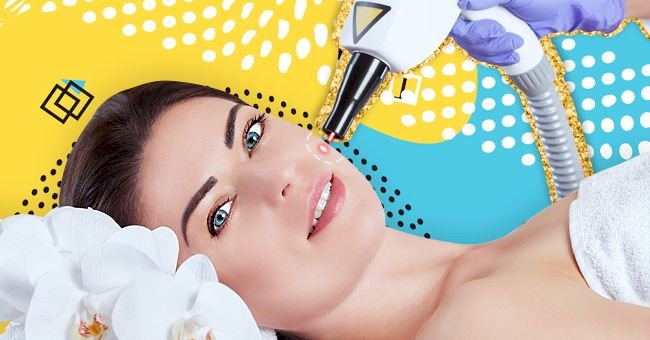
The Ultimate Guide To Laser Skin Resurfacing Treatments
The term "laser therapy" has been thrown around a lot in the beauty industry recently. Beauty therapy has taken a massive interest in gadgets that emit a narrow beam of a single wavelength, or color of light.
Lasers are now being used to treat sun damage, skin cancers, acne scars, and even to remove tattoos. One of the biggest laser-related treatments in the skincare space currently is the use of resurfacing laser to repair the skin and encourage collagen production. The powerful treatment promises big results. But there are a few things you should know before deciding to get it done.
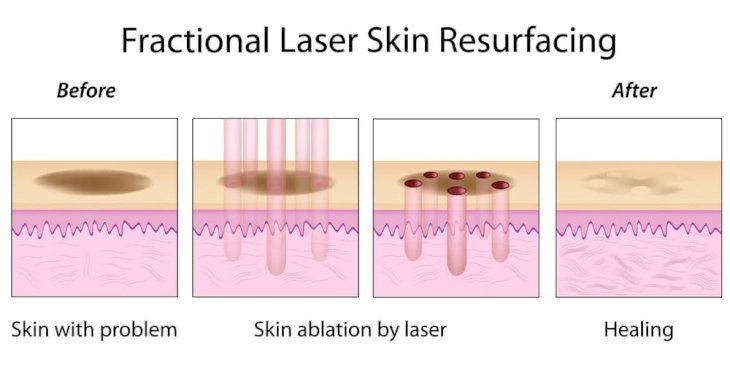
Shutterstock
What Is Laser Skin Resurfacing?
Laser skin resurfacing is a treatment that can treat wrinkles, age spots, acne scars, and other blemishes. There are a number of different treatments and lasers used to treat different conditions. Resurfacing lasers do not target the melanin or capillaries in the skin. They focus on water molecules within the collagen layer of the dermis.
"We're not trying to affect the water's appearance, obviously, but heating it creates a grid of what we call microthermal zones, which trigger extensive repair and collagen production by tricking the skin into a healing phase,"
says Robert Anolik, a clinical assistant professor of dermatology at the NYU School of Medicine.
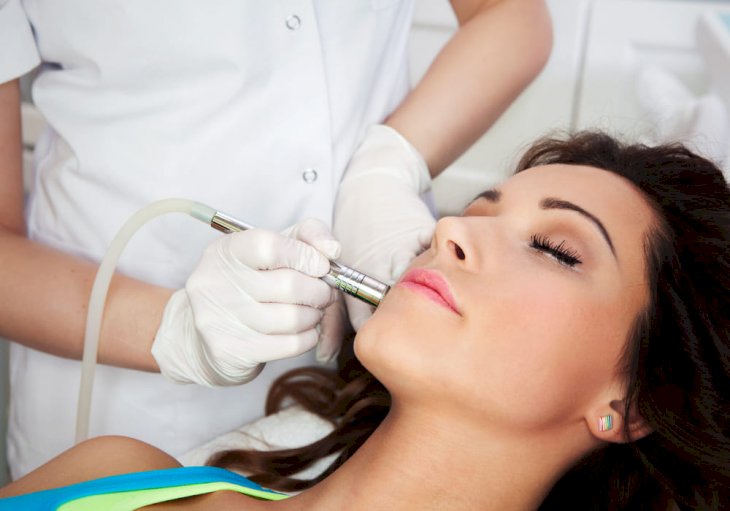
Shutterstock
Preparing for Laser Resurfacing
To determine if you are a good candidate for laser resurfacing it is important to first consult a plastic surgeon or dermatologist. If you suffer from cold sores or fever blisters around your mouth it is extremely important to disclose as laser skin resurfacing can trigger breakouts.
Your doctor will also ask you to avoid using any medications or supplements such as aspirin, ibuprofen, or vitamin E for at least 10 days before surgery. This is because these affect the ability of blood to clot. Your doctor may also prescribe an antibiotic to take before to prevent bacterial infections.
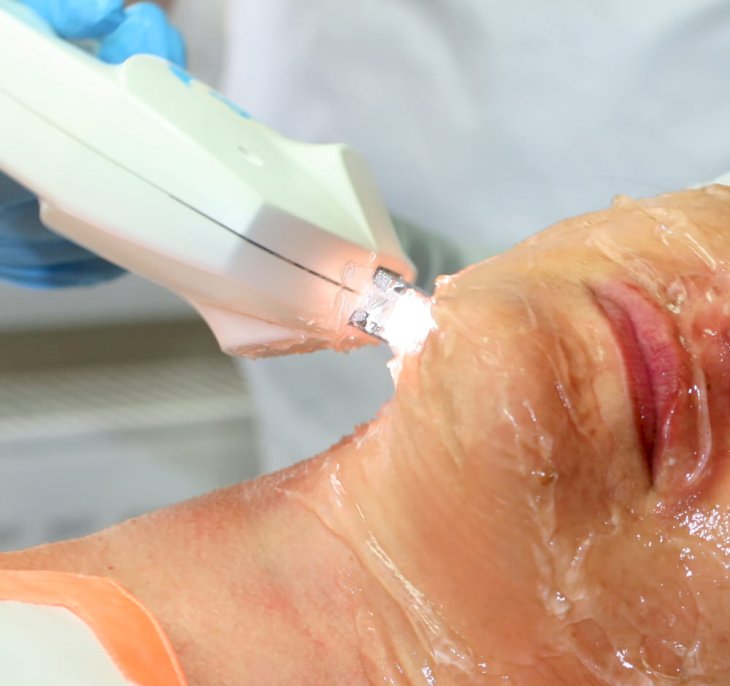
Shutterstock
Where Should You Get It Done?
As with any surgical procedure, you want to opt for someone who is a highly trained and knowledgeable professional. While laser resurfacing is a safe way to dramatically improve your skin, lasers can be ineffective or even dangerous when in inexperienced hands.
When picking a cosmetic surgeon ensure they are board-certified by the American Board of Cosmetic Surgery. This is because the board ensures its members undergo rigorous training in non-surgical treatments such as laser skin resurfacing.
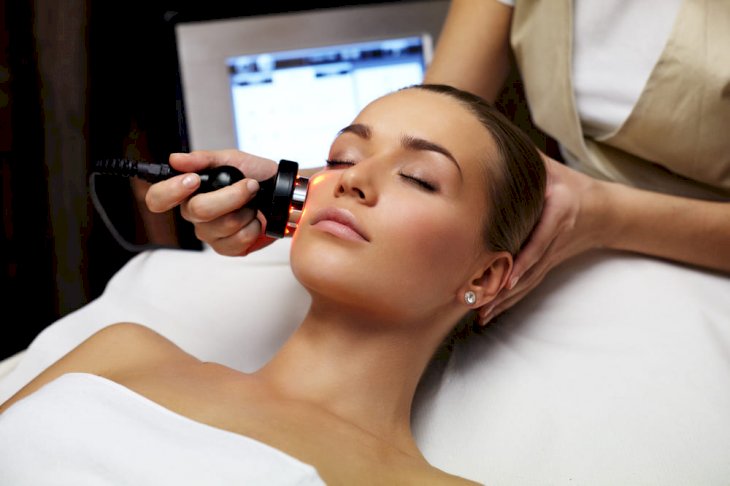
Shutterstock
Can Darker Skin Get Laser Resurfacing?
A common misconception in the industry is that laser resurfacing is only safe for lighter skin types. Lasers may pose a higher risk for cell damage or discoloration in darker skin however there are safe and effective resurfacing options available.
The Erbium laser resurfacing is recommended for lighter-toned dark skin tones as it shows lower risk for discoloration. For deeper toned patients skin resurfacing options such as radio-frequency treatments or micro-needling are more recommended than laser therapy.
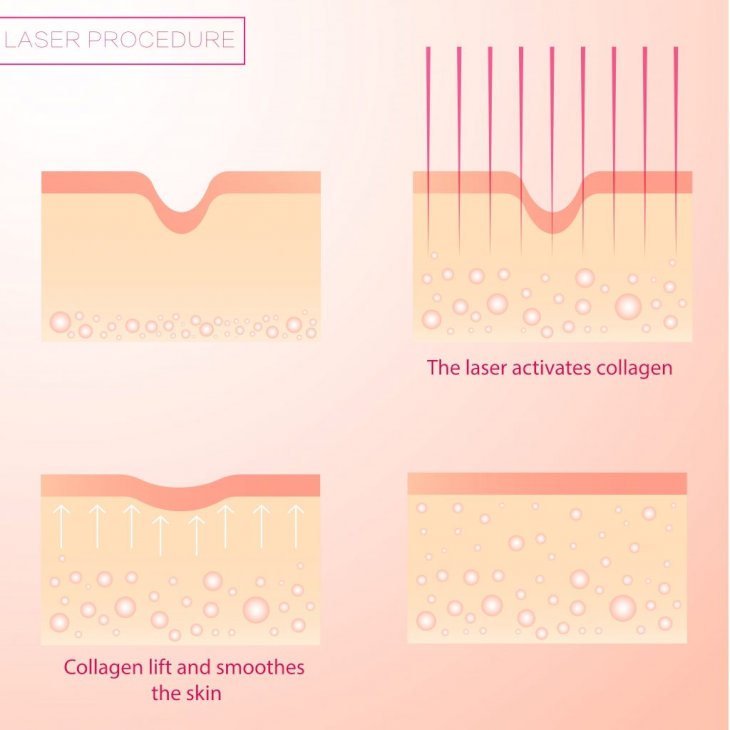
Shutterstock
So Many Options
There are tons of different laser options available. Picking the right one for you will depend on your condition. Here is a look at some of the more common options and what they do:
- CO2 Lasers: ablative lasers that treat scars, warts, wrinkles, and other deeper skin flaws.
- Erbium Lasers: Both ablative or non-ablative. These promote collagen remodeling to treat fine lines, wrinkles, skin laxity, and age spots.
- Pulsed-Dye Lasers: non-ablative lasers. These heat the skin and absorb pigments to reduce redness, hyperpigmentation, broken capillaries, and rosacea.
- Fractional Lasers: divide the laser energy into thousands of tiny beams. This is used to treat small sections of the skin making healing faster. These can be ablative or non-ablative and treat a number of age-related blemishes.
- IPL (intense pulsed light) is technically not lasers. They treat sun damage, acne, rosacea, and hyperpigmentation.
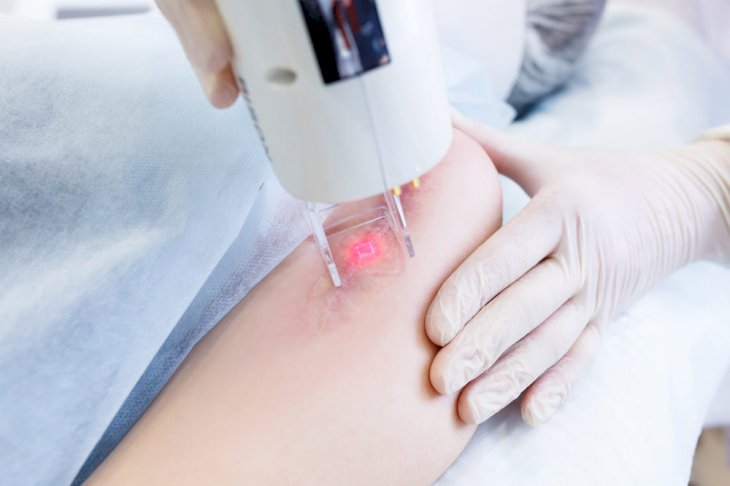
Shutterstock
Benefits and Risks of Laser Resurfacing
Although skin resurfacing is advertised as the cure to all your skin woes, the treatment has its fair share of risks. Common risks include:
- Burns or other injuries caused by laser's heat
- Scarring
- Changes in the skin's pigmentation
- Reactivating herpes cold sores
- Bacterial infection
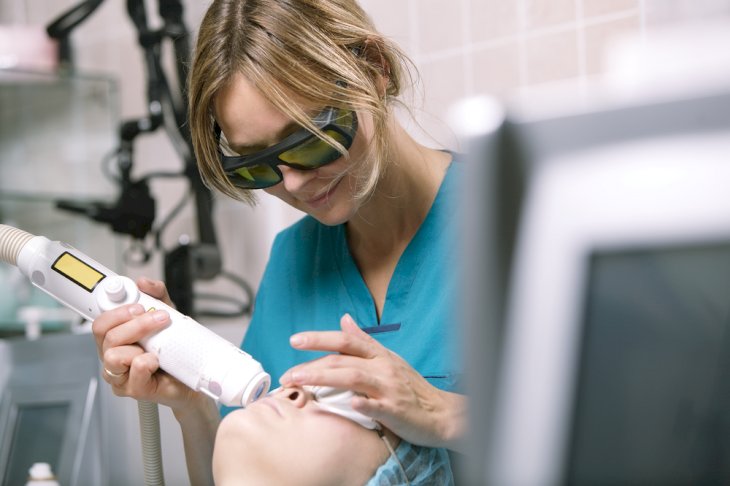
Shutterstock
Cost of Laser Skin Resurfacing
The average cost for laser skin resurfacing varies majorly depending on the type of procedure and laser being used. It usually starts around $300 per session.